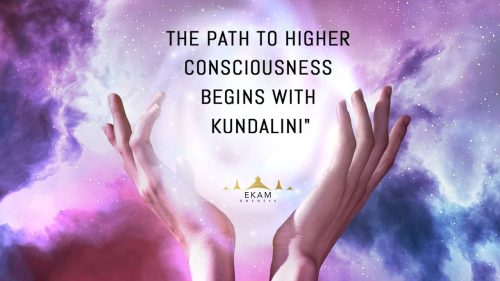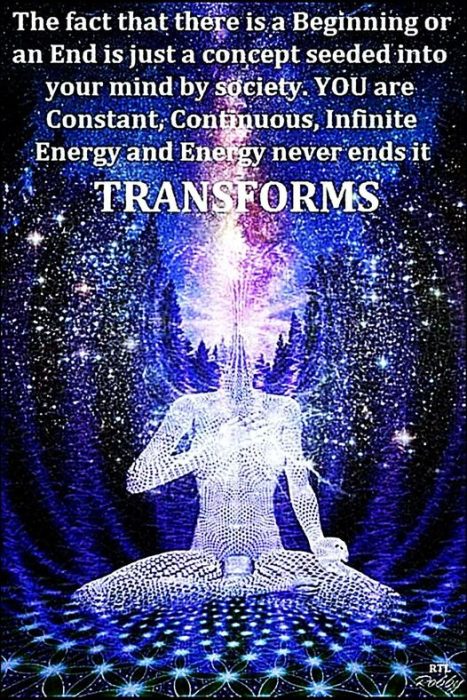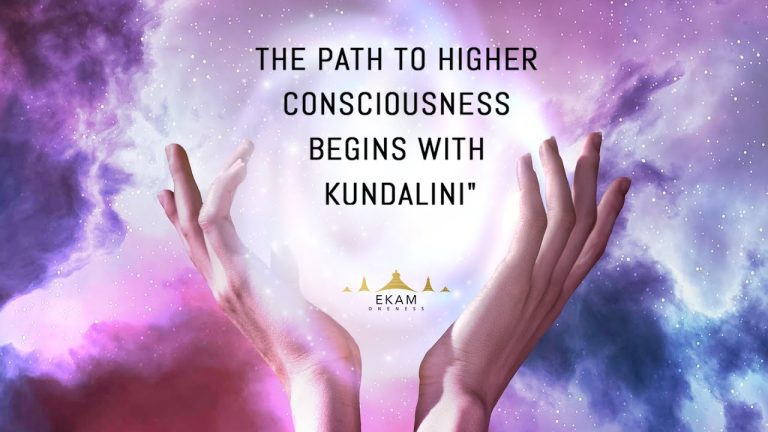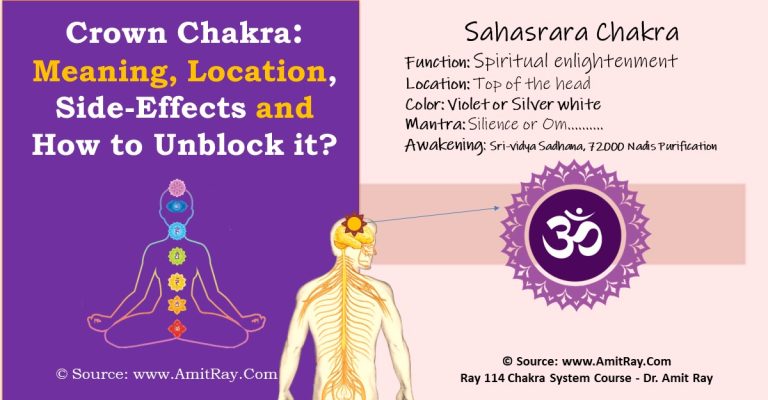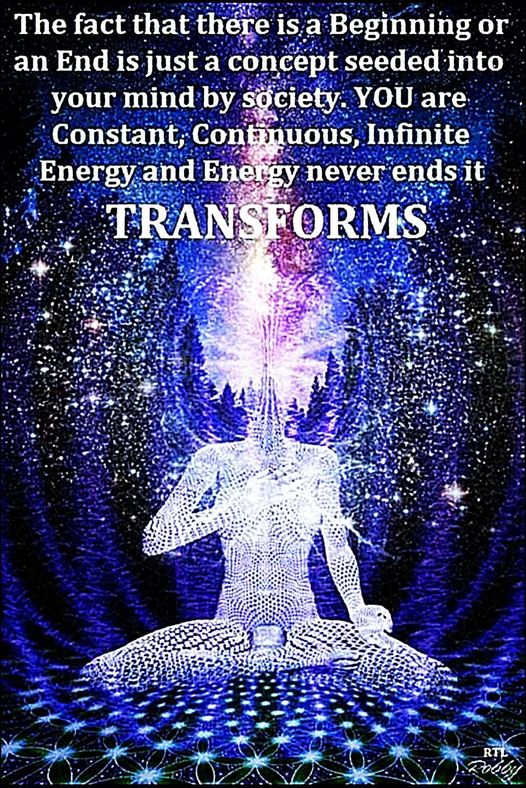
Why is it called “enlightened”? Because when you are enlightened you have Light; you have Light inside you, outside you and in the whole universe all is your Light. Your Light is even so great that it shines outside, that even some people can see the Light around you. Therefore you see Jesus, Buddha and the great Saints all had the Light around Them, a halo around Them. So this is what it means by being “enlightened.” So if you want to become a Master, you must have Light, you must be “enlightened,” that’s the first condition. Then you must know two kinds of “samadhi,” meaning deep rooted bliss within yourself. When you are in the real samadhi it offers you wisdom and bliss, and when you are out of samadhi you’ll give this bliss and wisdom to the world, to whoever needs you or comes near to you. Some Masters are deep in samadhi, and they don’t go out to teach the world; and some good disciples of good Masters can also be in samadhi when they are near the Master or when they meditate.
A person becomes convinced of this: God, who seems to be far away, is the nearest of the near. Now he knows where to seek God, where to find God. It is true that unless you seek Him, you cannot find Him. Now you understand that God is the innermost Self, the Soul of all souls. You meditate on Him within you as your innermost self “The kingdom of God is within you.” That does not come with observation.
What is outside you can observe, but what is inmost, how can you observe that? You cannot objectify the innermost reality. You cannot objectify God. God may appear to you in form, but that experience is not the true measure of God-consciousness. You have to realize Him as pure consciousness. To do this you have to go through preliminary courses.
First, you have to develop intense longing for God. You intellectually recognize God to be the ideal, it is true, but intellectual recognition is one thing and the heart’s longing is another. Second, you have to meditate on Him. Generally, a person is instructed to meditate on Him through a form that represents divinity to him. Third, you have to further develop your longing for God by different methods of worship.
There are various methods of worship. Whatever suits your capacity, your tendency, your situation in life, you can adopt. There are physical methods, such as association with right types of people who are really interested in God, pilgrimages, and service to holy persons, to the temple of the Lord, offerings of what you love.
In offering what you love to God, you actually give your heart. There is a psychological effect of this action. Many do not believe in this ritualistic worship, but this has some meaning. When you daily offer to God some flowers, for instance, which you really like, in offering the flowers you are offering your heart. If you like any special kind of food, in offering that food to God you offer your heart at the same time, more or less. It depends on what kind of devotion you bring to the offering.
These physical actions have psychological effects. They will generate devotion within you. Similarly, you practise on verbal methods. Sing the glory of God, sing devotional songs, say prayers, read scriptures, hear sermons, all are verbal methods of worshipping God. They will help develop devotion within you. You may accept God intellectually as the goal, but the heart must move forward towards God. There must be a yearning for God.
The heart must move with the head. You cannot realize God only through the head for thereby you will only be a scholar at best. In mental worship you try to remember God as much as possible, and try to practise self-resignation to God as much as possible. You do these practices, and more and more devotion will grow within you. At the same time, you continue the practise of meditation daily. When this devotion is truly developed, you will realize God.
Some posture is necessary for the practice of meditation. One condition of posture is this: your trunk, the neck, and the head should be in one verticle line. The body will then offer the least resistance to the practice of meditation, because all the important organs function rightly, and physical resistance is minimized. Practise moderation in eating, drinking, and sleeping, says Sri Krishna in the Bhagavad-gita. Ifyou work too hard you cannot practise meditation. You should live a very regular, moderate life.
A person requires a symbol for practising concentration of the mind on God. The best symbol is the symbol of the Supreme Being, who is the innermost sell According to Hindu spiritual discipline, a person can also take up a verbal symbol. If any form represents Divinity to you, that is a viable symbol. Words can also be used. In prayer we use too many words, but as your devotion to God becomes intense, one or two words become enough to concentrate your thoughts on God.
If you really understand the significance of the life of Jesus Christ, just the word Jesus will be enough to fill your heart with devotion. If you really love a person, his or her very name is enough to overwhelm you. Struggle to develop that kind of intense feeling. Take up a word; repeat it.
It will work on the lower levels of the mind, clarifying the roots of sense attachment, eventually removing them until the mind is pure. Sri Krishna says in the Bhagavad-gita that the person who develops real longing for God and prays to God, through God’s grace, he realizes Hint. He concentrates his mind on God, carries on the worship of God in different ways, and, at the some time, meditates on God.
Then, through God’s grace, the veil of darkness that covers the mind will be removed. He will realize God. It is possible to realize God through His grace, but grace does not down upon a person unless one works for it. He is gracious, it is true, but He will not give you anything unless you work for it. Jesus Christ says, “Seek, and ye shall find.” Does He not know that we need Him? If He is all gracious, why does He not come? “Ask, and it shall be given unto you. Knock (very hard!), and it shall be opened unto you.”
You have to do your own part. He has given you freedom, you must utilize that freedom and develop your longing for God, and then He will grant His grace to you. When a person develops longing for God and seeks His vision and prays to Him with deep concentration of the mind, God removes from within all veils, and He becomes revealed. There is a passage in the Bhagavadlita that explains the realization of God through His grace. Sri Krishna, the Divine Being incarnate in human form, says: “I am the origin of all. From Me everything evolves.
Thus thinking, the wise worship Me with loving consciousness. With their minds fully in Me, with their senses absorbed in Me, enlightening one another and always speaking of Me, they are satisfied and delighted. To them, ever steadfast and serving Me with affection, I give that understanding by which they come unto Me. Out of mere compassion for them, I, abiding in their hearts, remove the darkness born of ignorance by the luminous romp of knowledge.”
The culmination of meditation is called samadhi. In samadhi the distinction between the meditater, the object of meditation, and the process of meditation is obliterated. The self becomes united with God. There are two kinds of somadhi. In one the devotee realizes himself as belonging to God; in the other kind of somodhi this self becomes completely absorbed in God. The first type is called “savikalpa” samadhi; the other is called “nirvikalpa” samadhi. One should develop the understanding through the practice of virtue that God is the supreme goal of life. Accept Him as the supreme goal of life, and then develop a longing for reaching God, for realizing God.
‘
Unless you have real longing, your mind can never be absorbed in the thought of God. Your mind becomes naturally absorbed in what you love. A mother can, without difficulty, meditate on the beloved child. A devoted wife can, without difficulty, meditate on the husband. A miser can easily meditate on his hoarded treasure. The one condition that we must understand is that there is one supreme goal of life.
Where is the culmination of all knowledge? Where is the fulfilment of all desires? You must know the answer to these questions, and then develop a longing for That. These are practical courses. You just have to adopt the courses and practise them from day to day. You will surely make progress, and ultimately reach the highest goal.
Why is it called “enlightened”? Because when you are enlightened you have Light; you have Light inside you, outside you and in the whole universe all is your Light. Your Light is even so great that it shines outside, that even some people can see the Light around you. Therefore you see Jesus, Buddha and the great Saints all had the Light around Them, a halo around Them. So this is what it means by being “enlightened.”
So if you want to become a Master, you must have Light, you must be “enlightened,” that’s the first condition. Then you must know two kinds of “samadhi,” meaning deep rooted bliss within yourself. When you are in the real samadhi it offers you wisdom and bliss, and when you are out of samadhi you’ll give this bliss and wisdom to the world, to whoever needs you or comes near to you. Some Masters are deep in samadhi, and they don’t go out to teach the world; and some good disciples of good Masters can also be in samadhi when they are near the Master or when they meditate.
